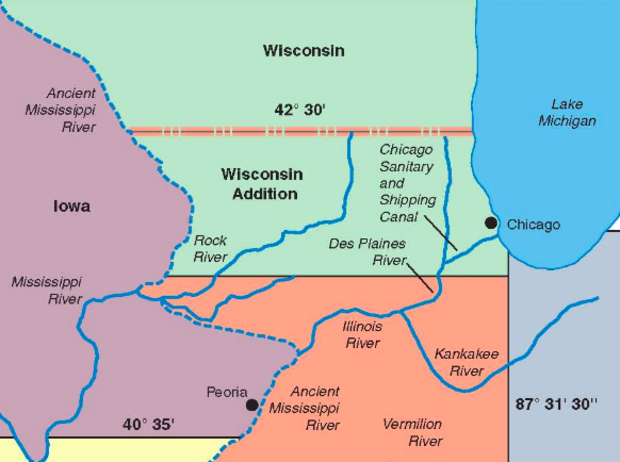CHICAGO — Chicagoans, we were this close to being Cheeseheads.
Illinois, which officially became a state Dec. 3, 1818, is nearing its 200th anniversary.
A 2014 Journal of Science study on how Illinois' borders were shaped reveals how close the term "Chicago, Wisconsin" was to becoming a reality.
The proposed northern boundary in 1817 for Illinois, according to the study, was a "straight line from the southernmost tip of Lake Michigan (in Indiana) to the Mississippi River just south of the Rock River confluence with the Mississippi River." (see the map below)
But Nathaniel Pope, the Illinois territory's congressional delegate, proposed to move the boundary 51 miles north. Pope made the proposal "for economic reasons and to give Illinois access to Lake Michigan, the Great Lakes and the St. Lawrence Seaway," the study said. With the help of his brother, Kentucky Sen. John Pope — Kentucky became a state in 1792 — Nathaniel's proposal was accepted by Congress.
"There is little doubt that if not for the political savvy of the Illinois territory's congressional delegate Nathaniel Pope, as well as his brother, Kentucky Sen. John Pope, the City of Chicago and municipalities like Rockford would be in Wisconsin, not Illinois," said Daniel Pogorzelski of Forgotten Chicago.
Chicago became a city in 1837, and 11 years later, the Illinois and Michigan Canal was completed, which helped spur a massive population boost in the city. The accepted boundary also added 5,440,000 acres of "very productive soils" to Illinois, the study said.
"By navigating the larger trends and controversies of the nation at the time, the two siblings not only substantially expanded the state, their success altered the dynamics of how the state would evolve," Pogorzelski said.
For more neighborhood news, listen to DNAinfo Radio here.





















